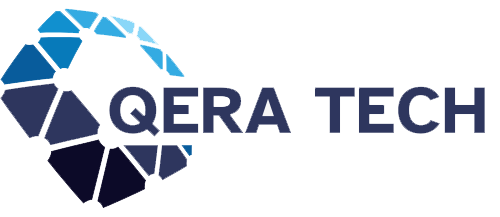Imagine having a personal assistant available 24/7—someone who can help you plan your day, prioritize your to-do list, and even coach you through productivity slumps.
That’s exactly what ChatGPT can be.
In 2025, where time feels like a luxury, AI tools like ChatGPT are transforming how we manage our day-to-day lives. If you’re struggling to stay organized or feel like your day slips away before you get anything done—this article is your lifeline.
Welcome to the world of ChatGPT time management prompts—smart, simple queries that turn this AI into your personal productivity coach.
Why Time Management Is Broken (And How ChatGPT Fixes It)
Let’s face it: traditional time management advice doesn’t always work.
-
Planners pile up without being opened.
-
Time-blocking apps are abandoned after a week.
-
Sticky notes multiply but never disappear.
Why? Because productivity is personal. And that’s where ChatGPT shines. Instead of giving you a rigid system, it offers dynamic, adaptive solutions tailored to your needs—on demand.
With the right prompts, ChatGPT can:
-
Prioritize tasks based on urgency and importance.
-
Create personalized schedules and routines.
-
Suggest productivity methods suited to your work style.
-
Keep you accountable throughout the day.
-
Help you reflect on what’s working—and what’s not.
Let’s dive into 5 powerful ChatGPT prompts that can revolutionize how you manage your time.
Smart Prompt #1: “Create a Daily Schedule Based on My Tasks”
Use Case: Start your day with a realistic and structured plan.
Example Prompt:
“Here are my tasks for today: [insert list]. Create a detailed schedule from 9 AM to 5 PM with breaks included, prioritizing the most urgent ones first.”
What ChatGPT Does:
ChatGPT analyzes your task list, factors in time estimates, and gives you a detailed plan broken down by hour or half-hour. It even reminds you to hydrate, stretch, or take breaks.
Pro Tip:
Add context like energy levels (e.g., “I’m most productive in the morning”) or deadlines to help ChatGPT tailor the plan even better.
Smart Prompt #2: “Help Me Prioritize These Tasks Using the Eisenhower Matrix”
Use Case: Cut through the clutter and focus on what truly matters.
Example Prompt:
“Help me categorize these tasks using the Eisenhower Matrix: [insert task list].”
What ChatGPT Does:
It breaks your tasks into four categories:
-
Urgent & Important (Do first)
-
Not Urgent but Important (Schedule)
-
Urgent but Not Important (Delegate)
-
Neither Urgent nor Important (Eliminate)
Why This Works:
Most of us spend time on things that feel urgent but aren’t important. This prompt helps you focus on impact—not just activity.
Smart Prompt #3: “Break This Large Project Into Actionable Steps”
Use Case: Tackle procrastination by turning big, scary projects into bite-sized tasks.
Example Prompt:
“I need to finish a research report by Friday. Break it down into daily tasks for the next 5 days with manageable steps.”
What ChatGPT Does:
It reverse-engineers your project timeline and distributes tasks logically—starting with research, then outlining, writing, and editing.
Productivity Hack:
Ask ChatGPT to assign deadlines to each subtask, or use the SMART method (Specific, Measurable, Achievable, Relevant, Time-bound).
Smart Prompt #4: “Suggest a Time Management Strategy Based on My Work Style”
Use Case: Get a personalized productivity system that actually fits your personality.
Example Prompt:
“I work best in short bursts and get distracted easily. Recommend a time management technique that fits my style.”
What ChatGPT Might Recommend:
-
Pomodoro Technique (25 min work + 5 min break)
-
Timeboxing for focused blocks
-
Task batching for similar tasks
-
Eat That Frog for high-resistance tasks early in the day
Personalization Tips:
You can refine this further by telling ChatGPT your energy patterns, work environment, or preferred apps.
Smart Prompt #5: “Help Me Review My Week and Improve Time Management”
Use Case: Reflect on what worked and what didn’t—then optimize.
Example Prompt:
“Here’s how my week went: [insert summary]. What could I improve next week in terms of time management?”
What ChatGPT Does:
It evaluates your weekly output, identifies patterns (like overscheduling or underestimating tasks), and suggests improvements.
Real-Life Application:
This turns ChatGPT into your accountability coach. Do this every Friday, and you’ll build a habit of continuous improvement.
Feature Comparison Table: Time Management Prompts with ChatGPT
| Prompt # | Use Case | AI Action | Benefit |
|---|---|---|---|
| 1 | Daily scheduling | Builds hour-by-hour plan | Boosts daily focus |
| 2 | Task prioritization | Uses Eisenhower Matrix | Filters distractions |
| 3 | Project breakdown | Divides big task into mini steps | Reduces overwhelm |
| 4 | Strategy selection | Recommends method based on input | Personalizes your productivity |
| 5 | Weekly review | Analyzes patterns & improvements | Encourages reflection & progress |
FAQs About ChatGPT Time Management Prompts
Can ChatGPT actually make me more productive?
Yes—but only if you engage with it consistently and give clear, detailed input. It’s not a magic wand, but it’s a powerful assistant.
Do I need the Pro version of ChatGPT?
Not necessarily. The free version can handle most time management tasks. However, GPT-4 in the Pro version is more accurate and context-aware.
Can ChatGPT integrate with tools like Google Calendar or Notion?
Not directly—but you can copy-paste schedules or use plugins and tools like Zapier, Make.com, or browser extensions to bridge the gap.

